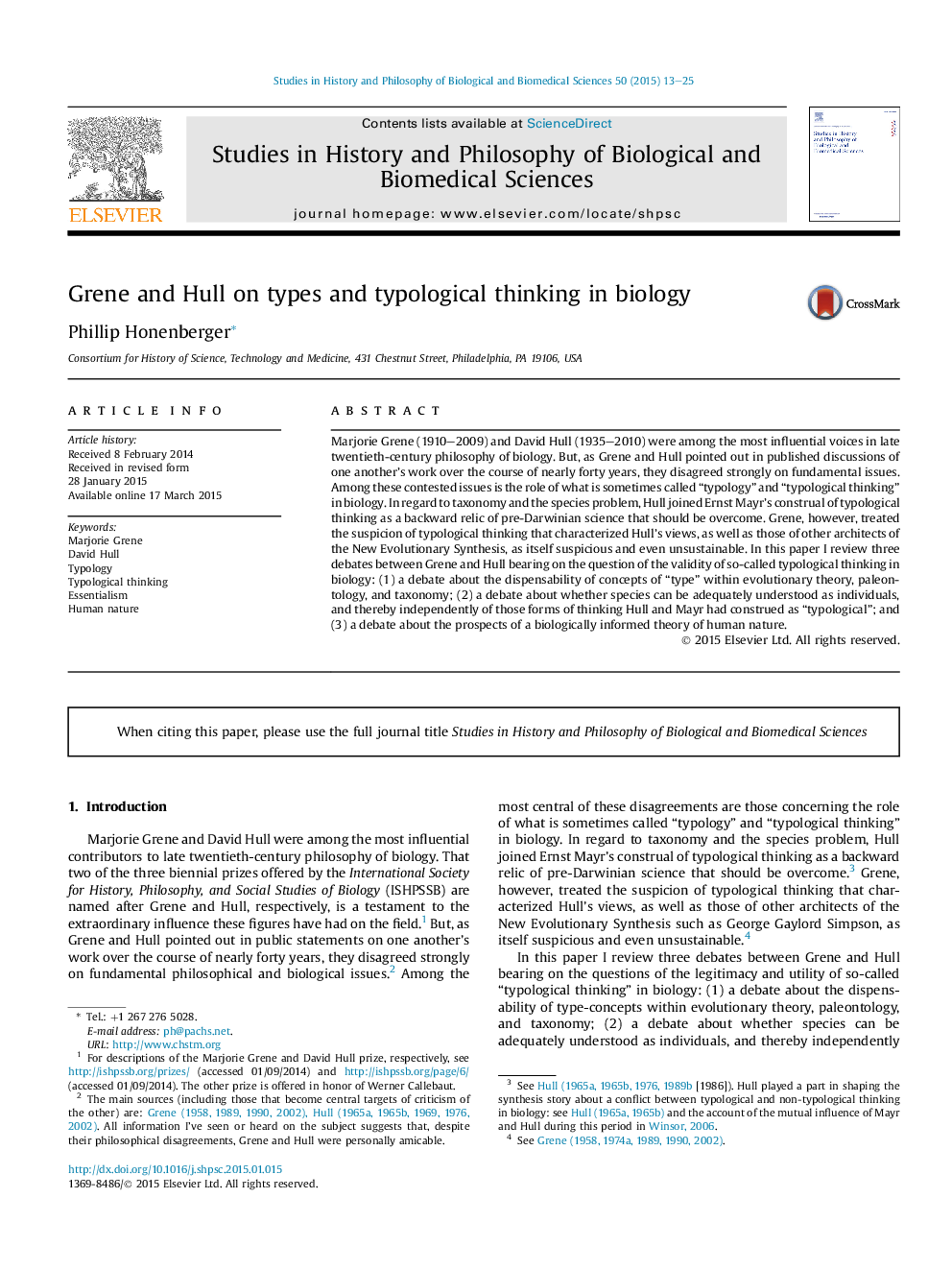| Article ID | Journal | Published Year | Pages | File Type |
|---|---|---|---|---|
| 1161163 | Studies in History and Philosophy of Science Part C: Studies in History and Philosophy of Biological and Biomedical Sciences | 2015 | 13 Pages |
•Detailed reconstruction of 30+ year debate between Marjorie Grene and David Hull.•Overview of recent discussions of “essentialism” and “typological thinking” in biology.•Discussion of role of sortal concepts in evolutionary biology, biological taxonomy, and theories of human nature.
Marjorie Grene (1910–2009) and David Hull (1935–2010) were among the most influential voices in late twentieth-century philosophy of biology. But, as Grene and Hull pointed out in published discussions of one another's work over the course of nearly forty years, they disagreed strongly on fundamental issues. Among these contested issues is the role of what is sometimes called “typology” and “typological thinking” in biology. In regard to taxonomy and the species problem, Hull joined Ernst Mayr's construal of typological thinking as a backward relic of pre-Darwinian science that should be overcome. Grene, however, treated the suspicion of typological thinking that characterized Hull's views, as well as those of other architects of the New Evolutionary Synthesis, as itself suspicious and even unsustainable. In this paper I review three debates between Grene and Hull bearing on the question of the validity of so-called typological thinking in biology: (1) a debate about the dispensability of concepts of “type” within evolutionary theory, paleontology, and taxonomy; (2) a debate about whether species can be adequately understood as individuals, and thereby independently of those forms of thinking Hull and Mayr had construed as “typological”; and (3) a debate about the prospects of a biologically informed theory of human nature.
